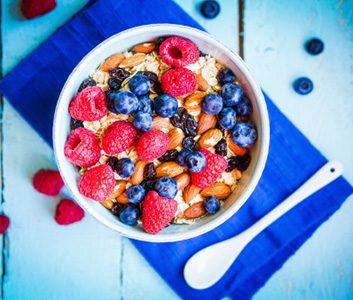
Avoiding complex carbohydrates
Individuals who forgo complex carbohydrates are cheating their bodies of the calming effects of serotonin – a chemical that your body produces for nerve function and mood regulation. “Complex carbohydrates initiate serotonin release,” says Desiree Nielsen, a registered dietitian in Vancouver, and the author of Unjunk Your Diet. “They’re very comforting to the body.” Complex carbohydrates found in whole grain breads and oatmeal are serotonin triggers, flooding the brain with natural calming vibes.

Drinking too much alcohol
Alcohol is a depressant and drinking too much can aggravate anxiety. “Alcohol has a negative effect on mental health,” says Nielsen. If you’re feeling anxious, don’t drink to calm down because it will aggravate anxiety symptoms. Booze can also disrupt your sleep. “Alcohol makes you feel drowsy, but it actually interferes with sleep patterns. If you interfere with sleep, you’re going to increase anxiety,” says Nielsen.
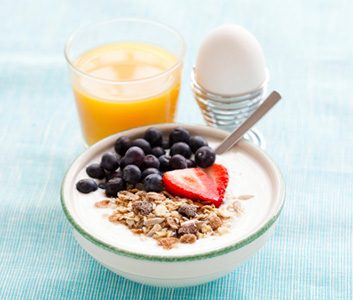
Skipping protein at breakfast
If your breakfast consists of toast or cereal, you might be feeling jittery a few hours later. “A lot of people eat carbohydrates at breakfast without a source of protein,” says Nielsen. “A carb-only meal will spike your blood sugars and lead to a crash. Adding 20 to 25g of protein to your breakfast, such as eggs, Greek yogurt, cottage cheese, or protein powder in a smoothie, will keep your energy, hormones and blood sugar levels stable.” Protein takes longer for your stomach to digest so you’ll feel fuller for longer, helping your body to avoid blood sugar crashes that can ramp up anxious feelings.
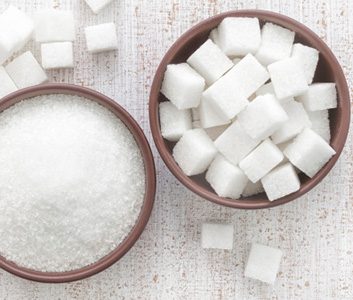
Consuming too much sugar
Too many sweet treats, such as pop and candy, can send your blood sugar levels on an unpleasant rollercoaster ride. “Sugar appears to be associated with increased anxiety, but it’s more of an immediate effect,” says Nielsen. Sugar triggers the release of dopamine, a neurotransmitter in the brain responsible for emotional response, and the ability to experience pleasure. “It gives you that high spike and then drops down. It’s the effects of sugar leaving the body that increases anxiety,” says Nielsen.
Individuals who experience panic attacks could confuse the shakes from a drop in blood sugar levels with symptoms of an impending attack. To kick sugar’s quivery effect, fuel up on healthy snacks. Aim for veggies like carrots and red pepper with a small portion of hummus, or apple slices with a bit of peanut butter.
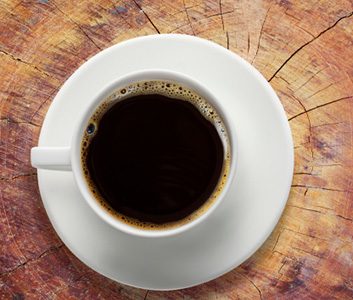
Relying on caffeine
Caffeine found in coffee and energy drinks can put you on edge. “Caffeine mimics a neurotransmitter in the brain called adenosine,” says Nielsen. “Adenosine connects to nerve cells to allow them to relax in the brain. Caffeine will connect to the same receptors as adenosine, but instead of allowing the nerve cells to relax, it increases their activity. Caffeine also increases dopamine, which gives you a high, so both can trigger anxiety. When withdrawal comes, you’ll feel jittery.” To keep caffeine’s influence on anxiety at bay, keep your coffee and energy drink consumption to one or two 250ml cups per day. “When people drink Venti-sized coffees, it’s the equivalent to three or four cups of coffee,” says Nielsen.
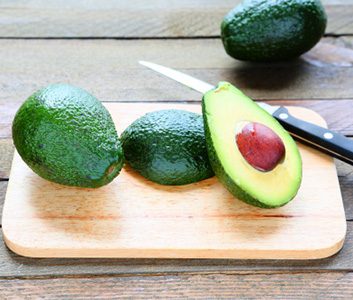
Eating too much saturated fat
Foods high in saturated fat, such as potato chips, pizza, and ice cream, may seem comforting, but eating excessive amounts can create anxiety. A 2012 study from Université du Montréal found that mice fed high-fat diets showed signs of increased stress. “You need a small amount of saturated fat for optimal health, but in excess it triggers bacterial endotoxins that cause inflammation in the gut, and that inflammation is linked to anxiety,” says Nielsen. To get the small amount of saturated fat that your body needs, opt for healthy choices such as salmon, avocado, olive oil, and raw nuts instead of hamburgers, bacon and candy.
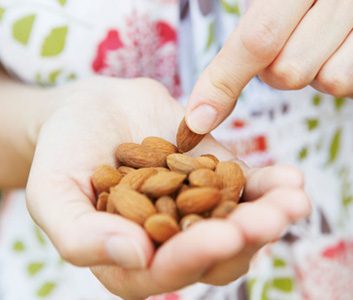
Eating irregularly
Skipping and delaying meals can make your moods and blood sugar unsteady. “Your body’s a high performance machine that needs to be fueled at regular intervals for all of your systems, including your brain, to be operating optimally. If you’re going four or five hours between meals, have a small healthful snack in between to keep yourself well fueled,” says Nielsen.

Counting calories too closely
“The act of going on a diet and increasing food preoccupation can impact mental wellness. Depravation increases anxiety,” says Nielsen. If you want to curb your food intake, Nielsen recommends making diet improvements gradually, so the changes don’t feel so restrictive, and anxiety isn’t an issue. “Don’t calorie count, because the types of foods we eat matter more for health than the calories they contain,” she says.
Related:
• 3 tips to help ease social anxiety
• 8 nutrients to help beat anxiety
• 5 secret signs you’re stressed
